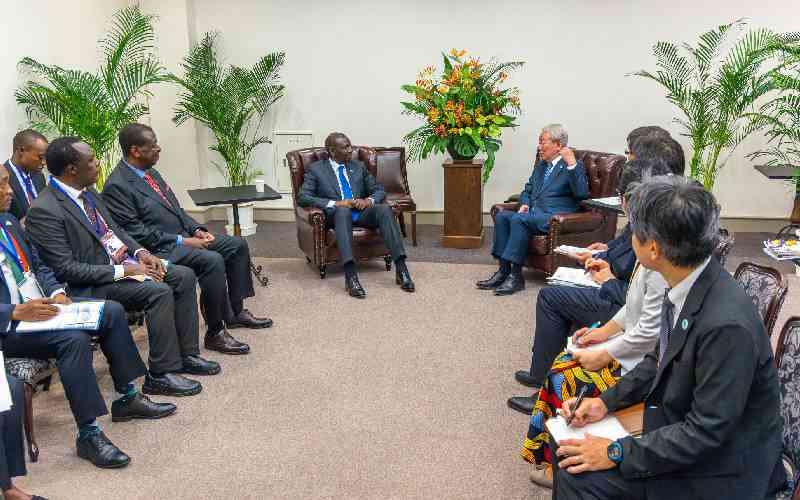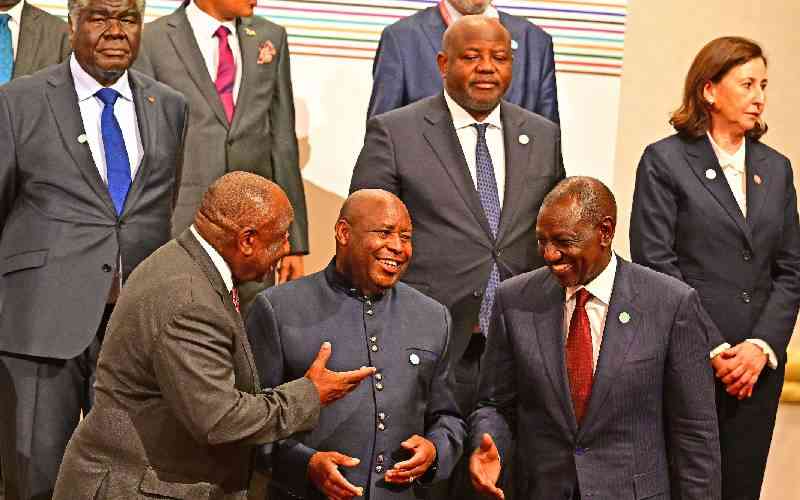
Kenya has signed a landmark Statement of Intent with Japan for a 25 billion Yen (Sh22 billion) Samurai financing facility that will accelerate local vehicle manufacturing and lower electricity costs for consumers.
The agreement was sealed on Thursday on the sidelines of the Ninth Tokyo International Conference on African Development (TICAD 9) in Yokohama, Japan, in a ceremony witnessed by President William Ruto and Japanese Prime Minister Shigeru Ishiba.
Prime Cabinet Secretary and Foreign Affairs Cabinet Secretary Musalia Mudavadi signed the deal on behalf of Kenya, while Mr Atsuo Kuroda, Chairman and CEO of Nippon Export and Investment Insurance (NEXI), represented Japan.
“This unique Samurai financing facility will promote our transformative program to stimulate the entire automotive value chain, foster linkages with other sectors and promote innovation, research and development,” Mudavadi said.
He added that the facility would also strengthen Kenya’s energy sector by cutting transmission and distribution losses, which currently average 23 percent of national output. “It will further improve access to affordable, reliable power by reducing losses in electricity transmission and distribution,” Mudavadi noted.
Under the financing structure, the Ministry of Investment, Trade and Industry will receive 15 billion Yen (Sh13.1 billion) to support local vehicle assemblers and parts manufacturers, scale up electric vehicle production, and reduce importation of used cars and spares.
The package also includes technical education and training to prepare Kenyan youth for jobs in the emerging green automotive industry.
The Ministry of Energy will access 5.5 billion Yen (Sh4.8 billion) to purchase and install high-efficiency transformers, addressing power system inefficiencies and cutting consumer bills.
The remaining 4.5 billion Yen (Sh3.9 billion) will support general government expenditure to ease fiscal pressures.
Mudavadi hailed Japan’s support, saying the partnership aligns with Kenya’s Bottom-Up Economic Transformation Agenda.
“This facility demonstrates our proactive approach to diversifying funding sources and reducing reliance on traditional borrowing channels,” he said.
The Samurai facility carries a seven-year maturity period and is expected to help Kenya reposition itself as a hub for clean mobility and affordable energy in the region.
